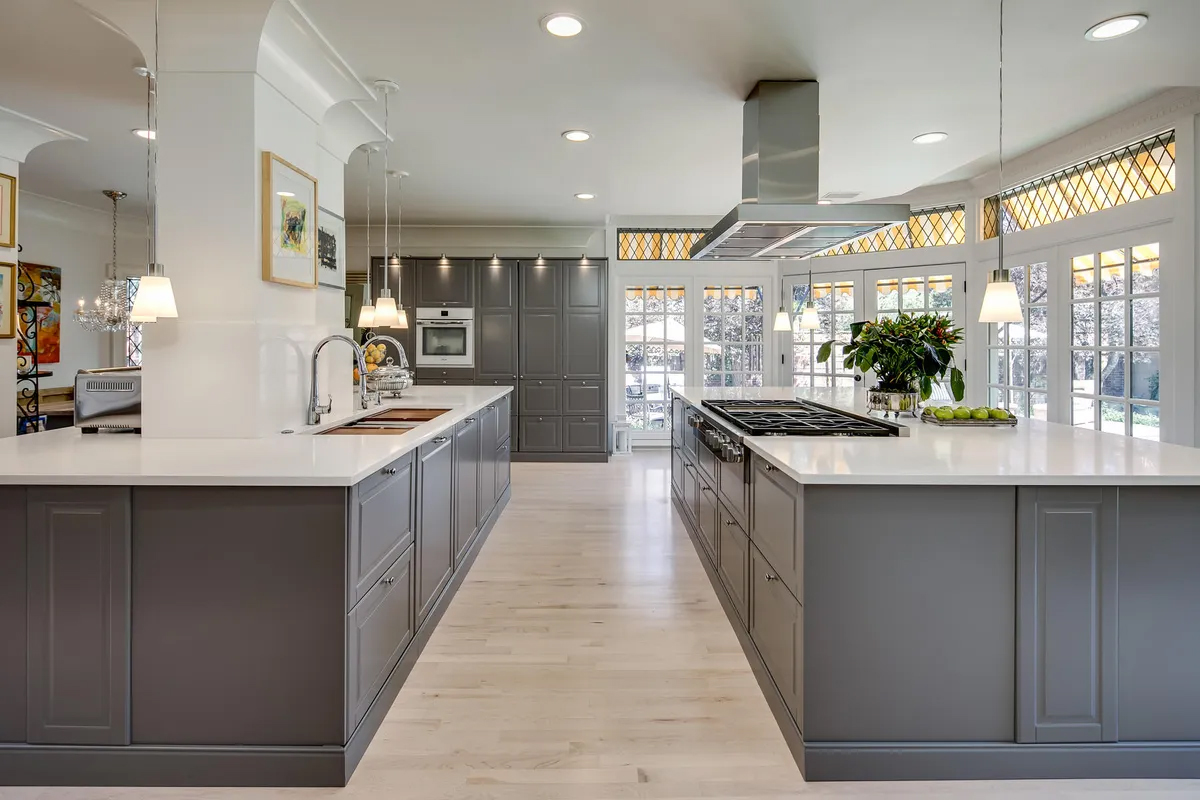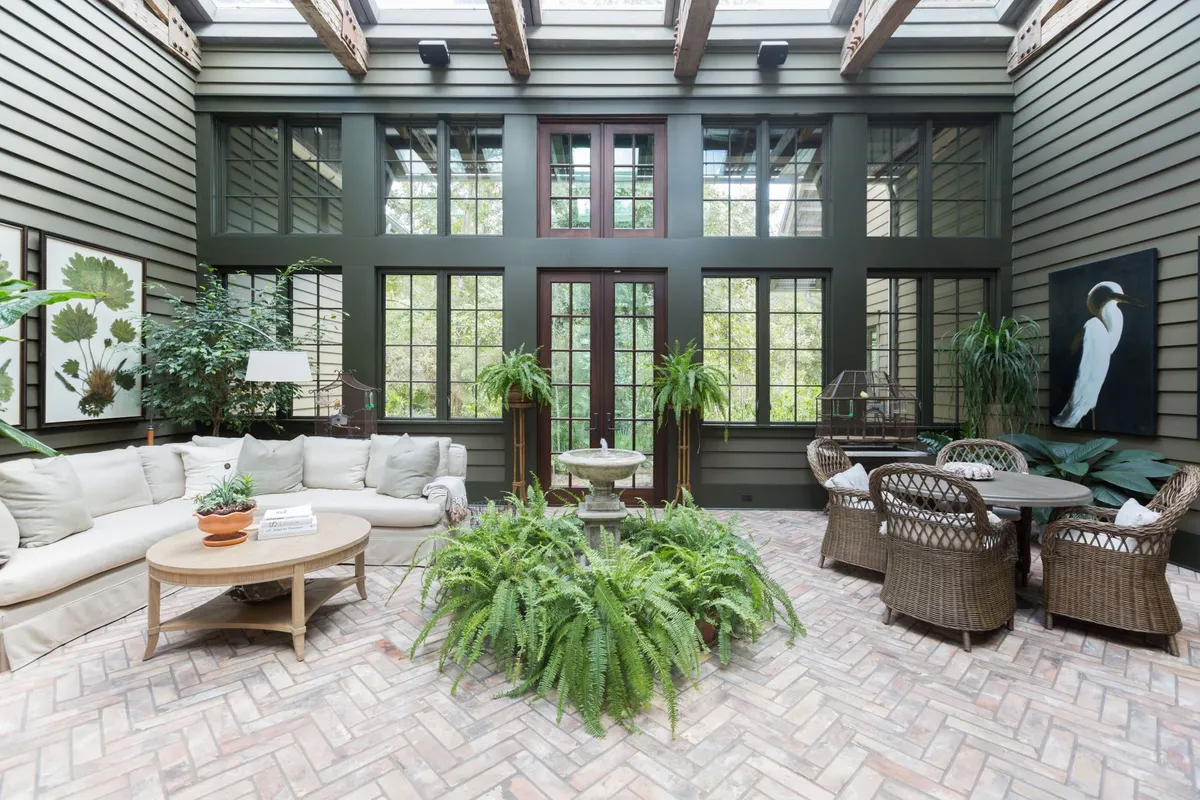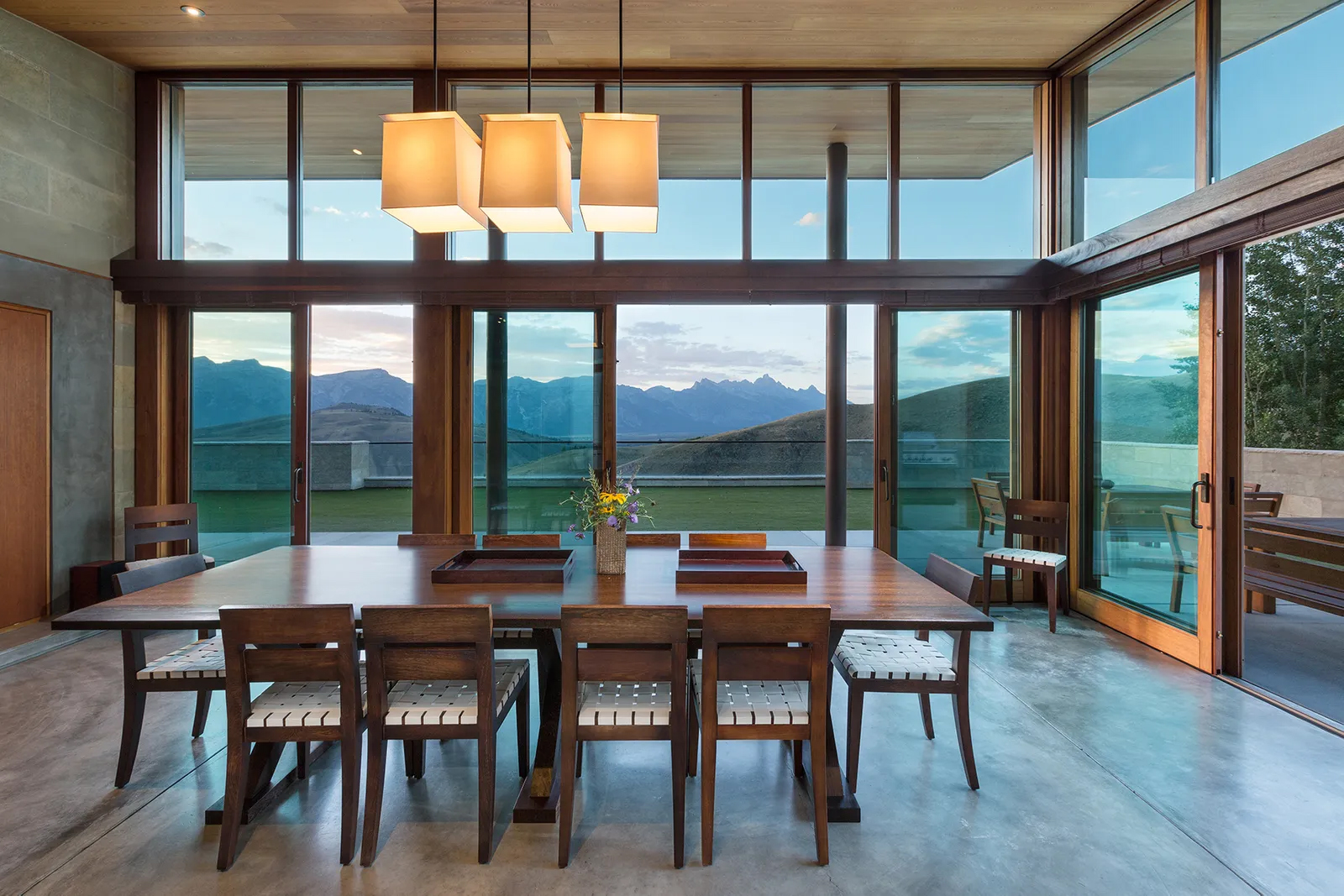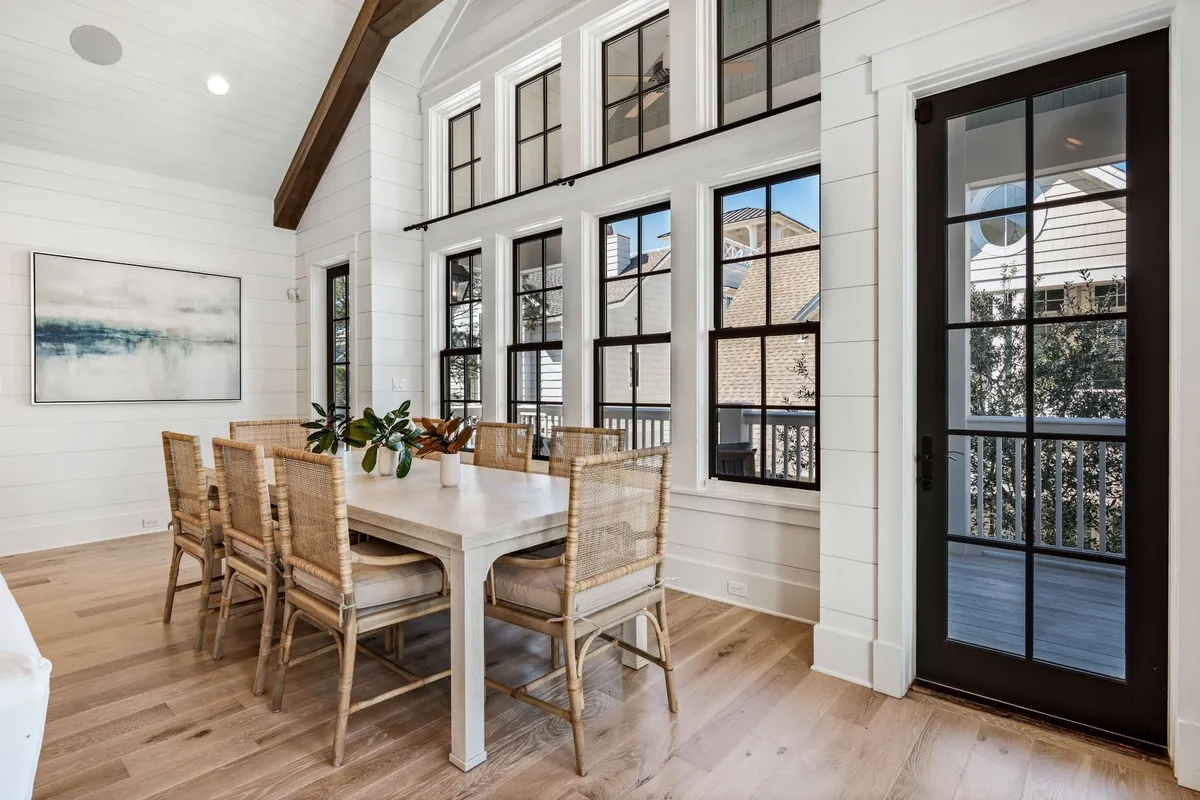For many buyers, flooring is an unexpectedly key factor in the choice of a home. Flooring can unify a space and make it stand out — or can draw unnecessary attention to itself and be a stumbling block to a sale. When preparing your next property for sale, flooring should be a focus, not an afterthought.
In-demand flooring styles are changing. Here, three top agents — Taylor Heslop, Broker Associate at LIV Sotheby’s International Realty, and Jo Stewart and Tanner Peacock, REALTORS® with Scenic Sotheby’s International Realty — share their insights on what types are sought after by today’s luxury clients, and how agents can help their sellers see the value of revitalizing their floors.
Materials of the moment
Light-colored hardwood

LIV Sotheby’s International Realty

Tanner Peacock
Clean, elegant, and versatile hardwood is preferred over carpeting and tile throughout high-end homes — excluding, usually, bathrooms. Hardwood has become such a basic expectation that if your seller doesn’t have the flooring installed and the flooring suits the style and era of the home, it’s worth having a conversation about adding it before listing.
“Wide-plank weathered hardwoods in lighter colors, such as white oak, are popular in coastal homes,” say Stewart and Peacock. “Hardwoods with wider planks are also preferred in the more traditional neighborhoods.”
They note that hardwood is increasingly being put into areas of the home where other types of flooring were once favored. “Buyers seem to be taking carpet out of the master bedrooms and installing wood floors and adding rugs.”
Warm-tone natural stone

Scenic Sotheby’s International Realty

Jo Stewart
“If your clients are looking for some flooring design tips, you can’t go wrong with organic materials,” says Heslop. Stone has always been a favorite type of flooring in specific parts of a property, and its prevalence is on the rise.
“Marble remains very popular for bathrooms,” note Stewart and Peacock. “Natural travertine is in demand for outdoor living areas.” But stone of a light, neutral, and natural hue has made its way indoors as well and is a durable choice that complements both classic and contemporary interiors.
If a client already has stone floors, there are fairly simple ways to refurbish them ahead of a sale. “Honing a stone floor, changing the grout, or simply professionally cleaning them through a steam clean or diamond polish are effective methods,” says the Scenic Sotheby’s International Realty team. “It’s remarkable how much of a lift you can see in floors that have been professionally treated.”
Colored or textured concrete

Jackson Hole Sotheby’s International Realty
Heslop includes concrete in his list of desirable flooring. Despite the fact that this material may not traditionally be associated with warmth — either in appearance or feel — concrete can be mixed with integral colors, acids, and dyes to create more organic shades, and can be stained or decorated once it’s laid. Radiant heating works exceptionally well with these surfaces.
While concrete flooring is an intuitive fit for chic, modern interiors and industrial lofts, the breadth of colors and textures available makes it a good fit for many homes beyond the usual suspects. It also makes for a beautifully blank canvas for featuring rugs and runners.
Keep things bright

Scenic Sotheby’s International Realty

Taylor Heslop
Regardless of material, the main attributes prized in today’s market are light, natural, and warm. “As we go into a new decade, new style trends are emerging,” Heslop explains. “When it comes to flooring, we are transitioning from dark, high-gloss flooring to light floors with a natural matte finish. Light floors make the space feel larger, cleaner, and cozier — I must say, I’m loving this new trend.”
It’s a trend that Stewart and Peacock see from multiple sources as they stay on top of modern design. “Reading high-end interior magazines, following particular decorators on Instagram, talking to designers, and walking through the flooring showrooms from time to time lets us see what’s available and what’s selling.”
As they keep their eyes on designers and design publications, all three agents know that for every rule — and every trend — there are exceptions. “Today I might be saying light-colored flooring is the latest trend, but there’s bound to be a home in Architectural Digest rocking some dark floors,” says Heslop. “Every time I pick up a magazine, it makes me challenge the way I look at design.”
When to make a change
“Updating flooring can be a very pricy upgrade, and deciding whether to move forward or not comes down to simple economics: cost versus benefit,” cautions Heslop. “I like to gather quotes for replacement, refinish or repair, and cleaning to analyze what the best options are with my clients. If the cost outweighs the benefit of updating the floors we don’t move forward; however, if the benefit is greater, it’s time to schedule those contractors.”
You can help your sellers save money by strategically taking the focus away from flooring that needs work. “If the floors are stylistically outdated, we use stagers to help bring the home more on trend,” say Stewart and Peacock. “If the other areas of the home appear updated, the floors will be less of the focal point.”
Advising a client on whether or not they should not update their flooring can be a challenging conversation. “One of the best tips I can give another agent is to hire a professional,” says Heslop. “Sometimes clients need to hear the painful truth — but if you’re uncomfortable having that conversation, or think your sellers may not take it well, hire a designer or stager and let them provide their feedback. At the end of the day, you’re a real estate agent, not a designer. Bringing in another expert keeps you from having to deliver the bad news while reinforcing your professionalism.”
Flooring is the subtle X factor that underlies every view of every room in a home. Alongside variables like wall color and furnishings, agents should ensure that a property’s floors also resonate with buyers: foundational details can make a big impact.
About Sotheby’s International Realty
Sotheby’s International Realty was founded in 1976 as a real estate service for discerning clients of Sotheby’s auction house. Today, the company’s global footprint spans 990 offices located in 72 countries and territories worldwide, including 43 company-owned brokerage offices in key metropolitan and resort markets. In February 2004, Realogy entered into a long-term strategic alliance with Sotheby’s, the operator of the auction house. The agreement provided for the licensing of the Sotheby’s International Realty name and the development of a franchise system. The franchise system is comprised of an affiliate network, where each office is independently owned and operated. Sotheby’s International Realty supports its affiliates and agents with a host of operational, marketing, recruiting, educational and business development resources. Affiliates and agents also benefit from an association with the venerable Sotheby’s auction house, established in 1744. For more information, visit www.sothebysrealty.com.
The affiliate network is operated by Sotheby’s International Realty Affiliates LLC, and the company owned brokerages are operated by Sotheby’s International Realty, Inc. Both entities are subsidiaries of Realogy Holdings Corp. (NYSE: RLGY) a global leader in real estate franchising and provider of real estate brokerage, relocation and settlement services. Sotheby’s International Realty Affiliates LLC and Sotheby’s International Realty Inc., both fully support the principles of the Fair Housing Act and the Equal Opportunity Act.
Source: click here














